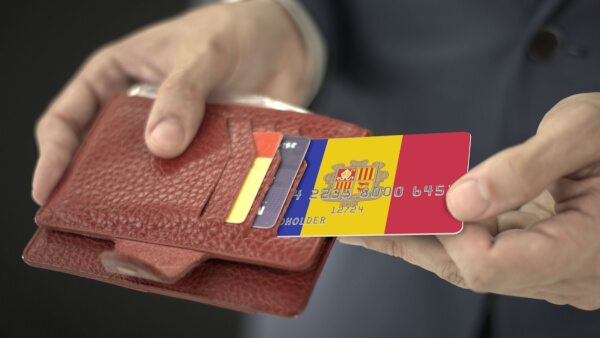How to open a UK bank account online in 2025
Check out our essential guide on how to open a bank account online, including bank types, required documents, fees, and more.

If you’re looking to experience Chinese culture, but aren’t ready to leave the West completely just yet, Hong Kong is the place to be. It’s one of the most vibrant and dynamic cities in the world, with a friendly expat community.
If you’re planning to work or stay in Hong Kong coming from the UK for any length of time, you’re going to need a bank account.
In this guide, we’ll show you exactly how to open one. We’ll cover everything from fees and charges to the best banks for non-residents from the UK, plus the documents you’ll need to open your new account.
Also, there are alternatives to a bank account, like the Wise account from Wise, a money services provider. It’s a travel-friendly, international account that lets you send, spend and receive multiple currencies worldwide (including in Hong Kong) all in one place.
Please see the Terms of Use for your region.
Broadly speaking, you’ll need the following documents in order to open a bank account in Hong Kong:¹
If you’re working in Hong Kong, you may also need to show your contract or a letter confirming your employment.¹
If you’re opening a student account, you may need an official letter from your university or education facility in Hong Kong confirming your registration as a full-time student.²
You’ll need an HK ID card if you’re over 11 years old and plan on staying in Hong Kong for more than 180 days.³
This smart card is an official identity document issued by the Immigration Department of Hong Kong. It has a range of security features and ingrained data to protect you from identity fraud.³
Applying for your HK ID card is free⁴ and the process is pretty straightforward. You’ll need to go to the Registration Of Persons Office and take your passport, travel documents and entry permit to the appointment with you.⁵ You may need a pre-filled application form and recent photos of yourself.
It usually takes around 7 working days for identity card applications to be processed.⁶
You don’t need to be a permanent resident to open a bank account in Hong Kong.² But, it’s important to remember though that different banks may have their own requirements for non-resident applications, as well as offering different products.
Here’s how to approach opening an account in Hong Kong:
Research the eligibility and requirements for opening an account with a specific Hong Kong bank
Gather the documents listed above and make necessary copies
Visit a local bank branch in person for identity verification and application
Choose the type of account you want to open
Wait for the approval
You may need to present additional documents requested by the bank
Get the account details and access your account
Unfortunately, you won’t be able to open a bank account in Hong Kong online. This is due to the country’s strict anti-money laundering rules.⁷ But once you have an account and are set up to use online banking, you should then be able to open other accounts if you want to.
Instead, you’ll need to make an appointment and attend a branch of the bank in person to set up your account. Some banks may let you complete an online application form in advance, which can help to speed things up a little.
But don’t worry, it’s not impossible. If your home bank has branches in both the UK and Hong Kong, you may be able to open your account remotely. For example, HSBC lets you apply for a bank account in Hong Kong through their mobile app.⁸
Once you arrive in Hong Kong, just visit your new branch to confirm your identity.

Hong Kong has over 150 banks⁹ to choose from, which can make selecting the right one a little overwhelming.
If you already bank with a large international bank such as HSBC or Standard Chartered Bank in your home country, the simplest solution is to stick with who you know and open a local account with them in Hong Kong.
Let’s have a brief look at some of the largest banks in Hong Kong to help you get started with choosing the right one for you.
And remember, there are alternatives to a bank account for managing your money in Hong Kong or internationally. Consider checking out the Wise account which allows you to send and receive money in multiple currencies (including in British pounds and Hong Kong dollars) for low fees and the mid-market exchange rate.
You can also get a Wise card to spend like a local once you arrive in Hong Kong.
Learn more about the Wise account 💰
Please see the Terms of Use for your region or visit Wise fees & pricing for the most up-to-date information on pricing and fees.
HSBC is one of the largest international banks in Hong Kong, and also has a presence in 62 countries and territories worldwide¹⁰ - including in the UK.
One of the best options for non-residents at HSBC is the HSBC One account that you can open through HSBC HK App if you’re already a customer at HSBC.¹¹ This offers access to a wide range of products, services and benefits. For example, credit cards, insurance products, deposits, investments and foreign currency exchange.¹²
Standard Chartered Bank also has a presence in both Hong Kong and the UK, making it a convenient option for expats and new arrivals.
Its Integrated Deposits Account allows you to manage all your current and savings accounts from one place, and also gives you access to a full range of foreign currencies. You’ll need an HK ID card to open this account though.¹³
You can start your application online but need to visit a physical branch to complete opening an account.¹³
Hang Seng is part of the HSBC group, so it offers many of the same rates and services.¹⁴
Along with a range of prestige and wealth management services, Hang Seng offers a useful Preferred Banking package that includes features for everyday banking needs – transfers, debit and credit cards, access to credit facilities, and more.¹⁵
Depending on the bank, you may be faced with a number of fees and charges. This is why it’s a smart idea to go through the terms and conditions carefully before opening a bank account in Hong Kong, to avoid any surprises or unexpected costs.
Some banks might charge a monthly fee, called an account maintenance fee. However, you can sometimes avoid this fee by keeping a certain balance in your account. Some account types, such as very basic bank accounts, may not have any maintenance fees. For example, HSBC One account has no maintenance fees or minimum balance requirements.¹⁶
Some banks may also charge an early closure fee if you close your account before a given time period expires.
For example, Standard Chartered Hong Kong charges an early closure fee of 200 HKD if you close your account within 3 months of opening it.¹⁷
Banks won’t usually charge you to use their own ATMs in Hong Kong. For example, customers with Standard Chartered can use Jetco ATMs free of charge.¹⁷
Using another bank’s ATM will usually incur a service charge, which can vary between banks.
International transfer fees vary between banks. But, as an example, Standard Chartered charges HK$50 when using online or mobile banking to send money overseas, and HK$200 if the payment is sent from a branch.¹⁷
And while some banks, such as Citibank, do offer free international transfers if your account is with the same banking group, you’ll still need to watch out, as you might be getting an unfavourable exchange rate.¹⁸
A bank account isn’t the only way to manage your finances abroad like in Hong Kong. Many expats, international students and digital nomads use Wise instead.
Wise is a money services provider, offering a multi-currency account, international money transfer services and a debit card.
Open a Wise account online and you can manage your money in multiple currencies (including in British pounds and Hong Kong dollars) and get a Wise card to spend internationally at the mid-market exchange rate.
Please see the Terms of Use for your region or visit Wise fees & pricing for the most up-to-date information on pricing and fees.
After reading this guide, you should be all set to apply for your new Hong Kong bank account. It’s much easier if you already live there, but don’t worry if you’ve not yet arrived - it just means a couple of extra steps and a slightly slower process. Good luck with your move to Hong Kong!
Sources used:
Sources last checked on date: 27-Sep-2023
*Please see terms of use and product availability for your region or visit Wise fees and pricing for the most up to date pricing and fee information.
This publication is provided for general information purposes and does not constitute legal, tax or other professional advice from Wise Payments Limited or its subsidiaries and its affiliates, and it is not intended as a substitute for obtaining advice from a financial advisor or any other professional.
We make no representations, warranties or guarantees, whether expressed or implied, that the content in the publication is accurate, complete or up to date.

Check out our essential guide on how to open a bank account online, including bank types, required documents, fees, and more.

Check out our essential guide on how to open a bank account in Jersey as a British expat, including documents, fees, banks and much more.

Check out our essential guide on how to open a bank account in Monaco as a British expat, including documents, fees, banks and much more.

Check out our essential guide on how to open a bank account in Andorra as a British expat, including documents, fees, banks and much more.

Read our rundown of the best Nationwide USD account alternatives available in the UK, including HSBC, Lloyds, Wise, Barclays, Revolut and more.

Read our essential guide to the Revolut USD Account, including info on features, fees, rates, limits and how to apply.